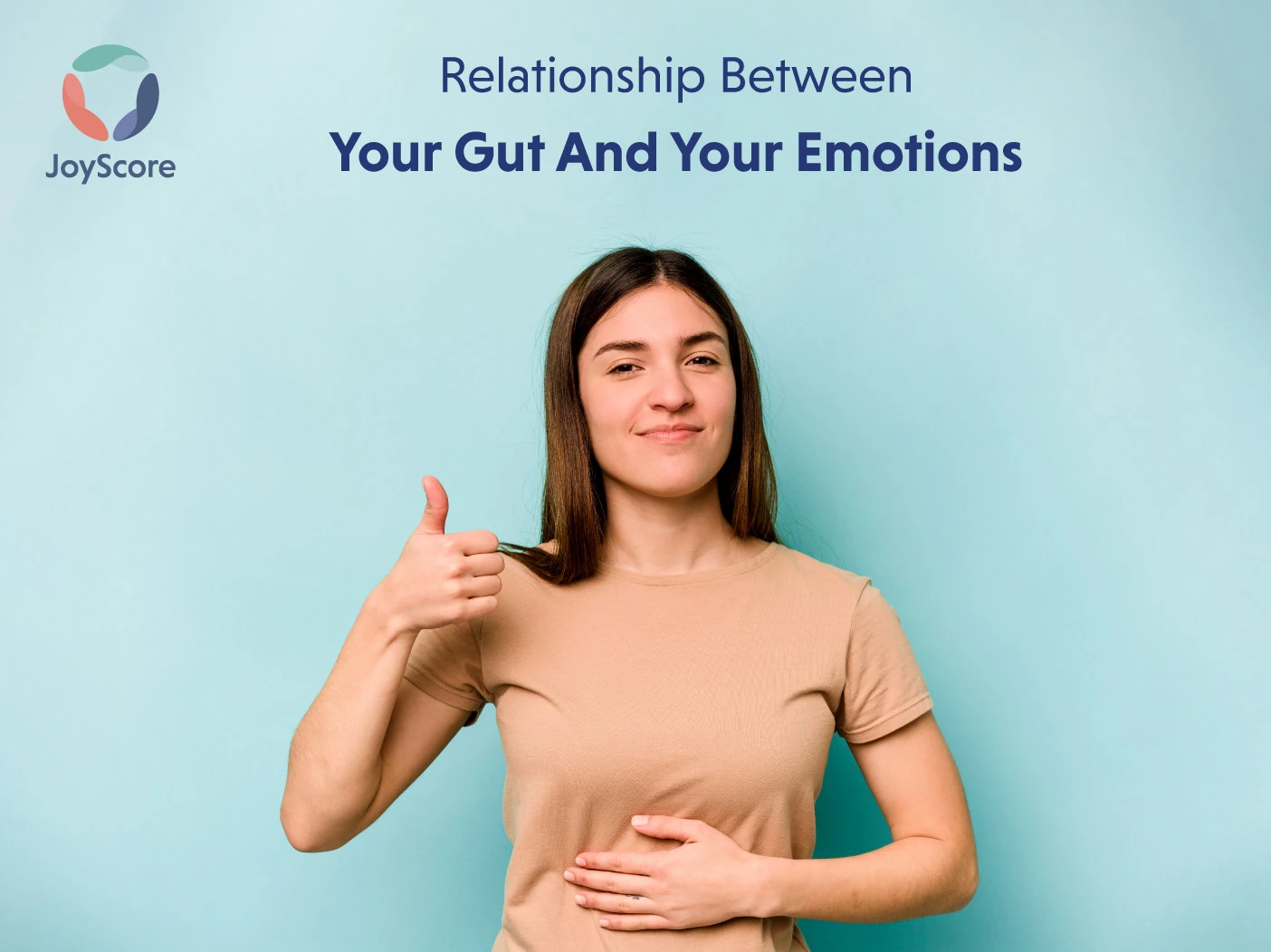Studies have conducted that the feeling of “butterflies in your stomach” is often due to anxiety and “depression” in the case of some chronic gastrointestinal problems. However, the result found is much more interesting than expected. A physical connection has been discovered between the gut and the brain, termed the gut-brain axis.
The gut and brain connection makes us undergo emotional experiences such as stress, anxiety, depression, and even gastrointestinal distress. Therefore, this relationship is responsible for the quality of digestion, mood, health, and even the way you think. Ever heard of the term “gut feeling?” This is a feeling that helps people make a sound decision about a situation or a person. In fact, 90% of humans say they trust this feeling.
Some emotions are also found to be present in our gut. Our digestive system tends to hide a second brain in the gut. Other than controlling emotions, the role of this brain is to regulate digestion, i.e., from swallowing to the release of digestive enzymes and absorption of nutrients in the bloodstream until the elimination of waste out of the anus.
The second brain of our gut is also capable of sending signals to the main brain and, therefore, is responsible for the emotional shifts in cases of gastrointestinal (GI) syndromes. Some GI problems are irritable bowel syndrome (IBS) and functional bowel problems like constipation, diarrhea, bloating, and stomach pain. This, therefore, confirms why a chronic sufferer of GI problems develops depression and anxiety disorders in the long run.
HOW ARE OUR GUT AND BRAIN CONNECTED?

VAGUS NERVE
The physical bond between the brain and the gut is maintained through millions of nerves called the vagus nerve. The role of this nerve is to control involuntary body activities like digestion, mood, heart rate, mucus and saliva production, and taste. The nerve sends signals in both directions between the gut and the brain.
Any problem with the vagus nerve can lead to the following symptoms.
- Abdominal pain
- Acid reflux
- Difficulty swallowing
- Wheezing sound and hoarseness of voice
- Unexpected weight loss
- Feeling nauseated
NEUROTRANSMITTERS
Neurotransmitters are the chemicals that help transmit signals from the gut to the brain and vice versa. There are seven neurotransmitters present in our brain that are responsible for controlling the different types of emotions. For example, dopamine is a neurotransmitter that contributes to feelings of pleasure and relaxes our anxious minds.
Some neurotransmitters are also produced in our gut. It is estimated that 90% of the body’s serotonin is produced in the digestive tract and is responsible for a feeling of happiness. Another neurotransmitter is gamma-aminobutyric acid, which controls feelings of fear and anxiety.
GUT MICROBES
Gut microbes, or the good bacteria of our gut, make chemicals affecting brain functioning. They produce lots of short-chain fatty acids (SCFA), such as butyrate, propionate, and acetate. SCFA helps in
- Reducing food intake and activity in the brain
- Forming a barrier between the brain and blood
- Metabolize bile acids and amino acids
Therefore, improve the composition of gut microbes by diversifying the diet and avoiding the overuse of highly processed foods and antibiotics.
FOODS IMPROVING THE GUT-BRAIN AXIS
As we all know, our gut-brain connection is sensitive to the change in gut microbial composition, and we can also use it to plan our treatment strategies. We can improve our diet plan by replacing many unhealthy foods with the following food groups.
- Probiotics
Probiotics are living microbes that mimic the good bacteria in our gut. Although probiotics prove very beneficial to our overall health, they have also been found to be good for our psychological well-being. The probiotics affecting the brain are called psychobiotics. They have been shown to improve the symptoms of stress, anxiety, and depression. Some foods rich in such probiotics are yogurt, sauerkraut, and miso.
- Prebiotics
Prebiotics are the fibers present in foods. Gut microbes feed on prebiotics and increase in number. Hence, prebiotics also indirectly reduce the stress hormones called cortisol in the body. Some foods rich in prebiotics are whole grains, nuts, seeds, fruits, and vegetables.
- Omega-3 fats
Omega-3 fatty acids have proved to be good for our mental and eye development. Experts advise a total intake of 500mg per day for adults. It will help you improve your intelligence, memory, focus, and mood. Some foods providing omega-3 fatty acids are salmon, cod liver oil, oysters, sardines, caviar, flax seeds, chia seeds, walnuts, and soybeans.
- Polyphenol rich foods
Polyphenols and other antioxidants such as vitamin C, vitamin E, and carotenoids protect the body’s tissues against oxidative stress and other associated pathologies. Foods with polyphenols are berries, herbs and spices, cocoa powder, nuts and seeds, olives, coffee and tea, and some vegetables like broccoli, carrot, spinach, and onions.
- Tryptophan
Tryptophan is an amino acid that converts into a brain chemical called serotonin. Serotonin further helps to control your anxious mind and sleep. One way to increase tryptophan in the brain is to consume complex carbohydrate sources like vegetables, fruits, legumes, and whole grains.
MIND-BODY TOOLS TO IMPROVE GASTROINTESTINAL PROBLEMS
Stress and other psychological factors can affect the movement and contractions of the GI tract. An example of this is when you feel nauseated before a presentation. Another situation would be when one has to bear intestinal pains during times of stress.
People with functional GI problems perceive pain more acutely than normal individuals. Therapies to reduce stress can be used to treat mental and GI disorders at the same time. Conventional medical treatments will give better results when given along with psychological treatment. Some mind-body tools that can help improve an anxious mind and disrupted gut are
- Meditation
Meditation can be practiced in a group or solely to reduce stress and bring inner peace. One’s mind gets free from the jumbled thoughts that may be causing stress. Ways to practice meditation on your own are deep breathing, mindfulness, and repeating religious mantras.
- Yoga
One can combine yoga with meditation to improve mental well-being. Yoga single-handedly also helps create mental clarity, relaxes the mind, and relieves chronic stress patterns.
- GUT DIRECTED HYPNOTHERAPY
Gut-directed hypnotherapy is a special mental therapy where a trained therapist guides a patient into a focused state of awareness. The techniques involved are a suggestion, imagery, and relaxation. This therapy has proven to improve GI symptoms in about 70%-80% of IBS patients.
CONCLUSION
This has brought us to the conclusion that as stress, anxiety, and physical symptoms improve with treatment, so do mood and quality of life. Therefore, treatment strategies have been developed by using the connection between our gut and brain and are giving fruitful results.
Download the JOYSCORE APP and be the master of a happy and healthy life.
Download on the Appstore
Get it on Google Play



